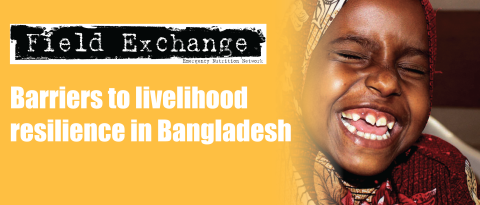Evidence-based Humanitarian Assistance Certificate
There is pressure on aid agencies to base humanitarian assistance on solid empirical evidence as well as establish field research programmes to measure programme efficiency, effectiveness and impact. A new Evidence-based Humanitarian Assistance Certificate is now on offer from Feinstein International Centre, Tufts University, US.
This programme will enhance a practitioner’s ability to carry out needs assessments in the food security and nutrition fields, design and carry out field research programs to measure the effectiveness of programming, and assess the impact of programming in both short and long term humanitarian crises. Students will learn to apply data-driven methodologies to the needs assessment, program design and implementation, and programme impact assessment phases of aid projects.
The certificate programme consists of the following three courses:
Field Research Methods in Humanitarian Settings
This course will address primary data collection in field settings, particularly those characterised by conflict and forced displacement where data collection methods confront logistical and ethnical challenges. At the end of the course students will be prepared to conduct their own fieldwork, and assess the value of others field research.
Food Security and Nutrition in Emergencies
This course will support participants to develop the skills to conduct a good analysis of food security and nutrition crises, and equip participants to make evidence-based intervention choices, and implement and monitor those interventions. Students will be able to synthesise these skills for improved overall programme management and impact.
Assessing and Measuring the Impact of Humanitarian Aid
This course will explore the problems of impact assessment for emergency operations and will provide students with training in some of the most promising methodologies of impact assessment, paying particular attention of participatory assessment methodologies. The course also explains the trade-offs between conventional ‘hard’ quantitative approaches and methods in humanitarian situations, and ‘soft’ qualitative approaches and methods, leading to understanding of the benefits of mixed methods for impact assessment. Finally, through analysis of institutional constraints to impact assessment, the course provides guidance on ways to use evidence to influence policy and programming in humanitarian contexts.
Applications
Applications are accepted through June of each year for the following Sept. Tuition for the term beginning Sept 2013 is set at $2,300 and has been subsidised.
Visit http://www.nutrition.tufts.edu/academics/certificate-programs/evidencebased- humanitarian-assistance-certificate for application form and email: nutritioncertificates@tufts.edu for more details.
Imported from FEX website


